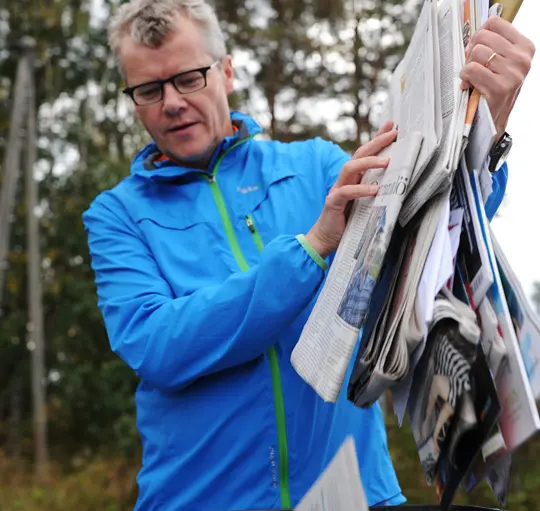Global – OCC prices for exports from Europe to China were around US$ 165-plus per tonne at the start of the third quarter but ended the period slightly higher at US$ 170-plus. Mixed paper prices also improved during the course of the quarter from US$ 130-plus per tonne to US$ 143-plus.
While many European countries have been reporting below-expectation recovered paper collections throughout the summer and even into the early autumn, France confirms a strengthening of collection activity in August and September.
‘In August, Asian buyers returned in force by significantly increasing their prices and thereby substantially influencing the French market,’ it is pointed out. Meanwhile, the deinking grades are attracting good demand although prices have stabilised at higher levels in September.
The Czech Republic has also witnessed a ‘moderate’ increase in recovered paper collection volumes – mainly of OCC – owing to increased consumption of paper products, and particularly packaging papers. But with no immediate growth envisaged in domestic processing capacities, the country’s recovered paper exports are on the increase.
Stocks are at normal levels and ready buyers exist for all grades. The story has been different elsewhere: in Italy, for example, recovered paper collections resumed in earnest last month following the summer holidays ‘but volumes have not increased greatly owing to the adverse impact of uncertain economic conditions on consumer spending’, it is argued.
Traditionally a quiet period for the UK recovered paper market, lower-than-usual seasonal generation of OCC and mixed paper, coupled with strong global demand, resulted in price increases of £15-20 per tonne in the third quarter. Domestic mills have struggled for pre-sorted news & pams and price increases of around £20-25 per tonne failed to increase stock levels significantly.
Prices for multigrade, SOW, SOP and office pack gained £10-15 per tonne amid ongoing fibre shortages. Also in the UK, The Recycling Association launched its Quality First campaign in September with the aim of delivering tangible improvements in UK feedstock through engagement with the entire supply and regulatory chain.
Finland reports a statistical balance between collection volumes and mills’ usage of recovered paper ‘but competition is becoming tighter and margins thinner’. And in Sweden, mills’ demand for the news grades remains good ‘amid a continuing shortage of magazine volumes’.
There continues to be high demand across the Nordic region for office grades ‘but the summer has passed without alarming shortages’. While mills in parts of Germany have tried to apply pressure on the prices for deinking and magazines, the south of the country conversely saw special orders for deinking.
In Spain, growing interest is reported domestically in long-term deals as a prelude to the high levels of competition anticipated once International Paper (IP) starts buying and consuming OCC for the former Holmen operation which is being switched from newsprint to packaging production. At present, IP is continuing to consume deinking grades.
As recovered paper collections have been insufficient in Turkey to meet domestic demand, imports have been running at approximately 40 000 tonnes per month. Heading to eastern Asia, mills in Indonesia and Vietnam have been unable to afford the higher prices demanded for fibre by suppliers in the West.
Indonesian mills have relied on more local and regional sources such as Singapore and Australia. ‘Although this material was no cheaper, delivery times were much shorter, enabling mills to buy on a more ad hoc basis and, more importantly, giving them the opportunity to reduce their recovered paper inventories,’ it is noted.
When Vietnamese mills have needed to import material, the source has often been Japan. ‘Many mills not only have good relations with Japan, some of them are co-owned by Japanese firms,’ it is pointed out. ‘The quality of Japanese material is always good, clean and dry, as well as available with short delivery times.
The Paper World Mirror is released by the Bureau of International Recycling for the benefit of its members.
Don't hesitate to contact us to share your input and ideas. Subscribe to the magazine or (free) newsletter.



